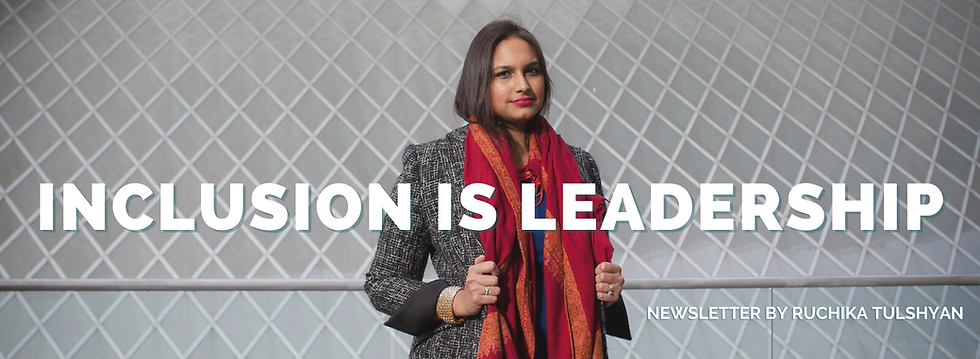Remote Work Is Not a Women’s Issue
- jasminebarta
- Jun 8, 2021
- 2 min read
Updated: Jan 19, 2022

Six years ago I heard of an approach to workplace D&I (we were yet to use “Equity” in daily-speak) that changed my mind:
Do not make workplace policies specifically around leave, remote and flexible work gender-specific. Be gender-, race-, disability-informed for sure but do not create policies that are focused only towards women, people of color, people with disabilities etc.
What Inclusive Workplace Policies Sound Like
I was interviewing Aniela Unguresan for my first book on how leaders could reduce the motherhood penalty (the financial and social price that mothers pay in the workplace, while academic research shows dads receive a fatherhood bonus.)
She simply said: offer and ensure parental leave and policies around flexibility (what we now call remote work) is for everyone.
If only women take it, they’ll be treated like “special cases.” They’ll be less likely to be hired, promoted or advanced into leadership positions, because they’ll always be seen as needing accommodations that men don’t need.
So, offer everyone the benefit and don’t call it “maternity leave” or “flexibility for mothers.” Ensure senior leaders avail of it, visibly and vocally.
Mind. Blown.

Every “Issue” is a Human One
Nothing in the workplace should ever be a women’s issue.
That framing’s been on my mind as leaders plan returning to the office in the United States. For too long, remote work was characterized as a “women’s issue.” And now, the possibility of remote work long-term or a hybrid approach has been characterized as what female employees need. Because, you know, women are expected to be caregivers and work.
As more leaders embrace a hybrid return-to-office approach––for employees privileged enough to work from home the past year-plus––we must lead inclusively. We must ensure we don’t create “special categories” and exceptions for some people (mothers and other female caregivers, people with disabilities, to name a few) to work from home, while expecting everyone else to return back to the office full-time.
Leaders need to normalize everyone working from home when they want and as they need, not only in “special circumstances.” Otherwise, the inequities in our workplace–ones that were widened during the pandemic–will grow to gulf-like proportions.
Ensure that employees who return to the office are not considered more committed or engaged (thinking of the CEO who made this public gaffe) than those who need or choose to continue working remotely.
Bottom-line: trust people to make the right decision on what they need to be most engaged and don’t penalize those (often women) who make different ones than you.
What’s something else people characterize as a “women’s issue” but isn’t?

.png)
Comments